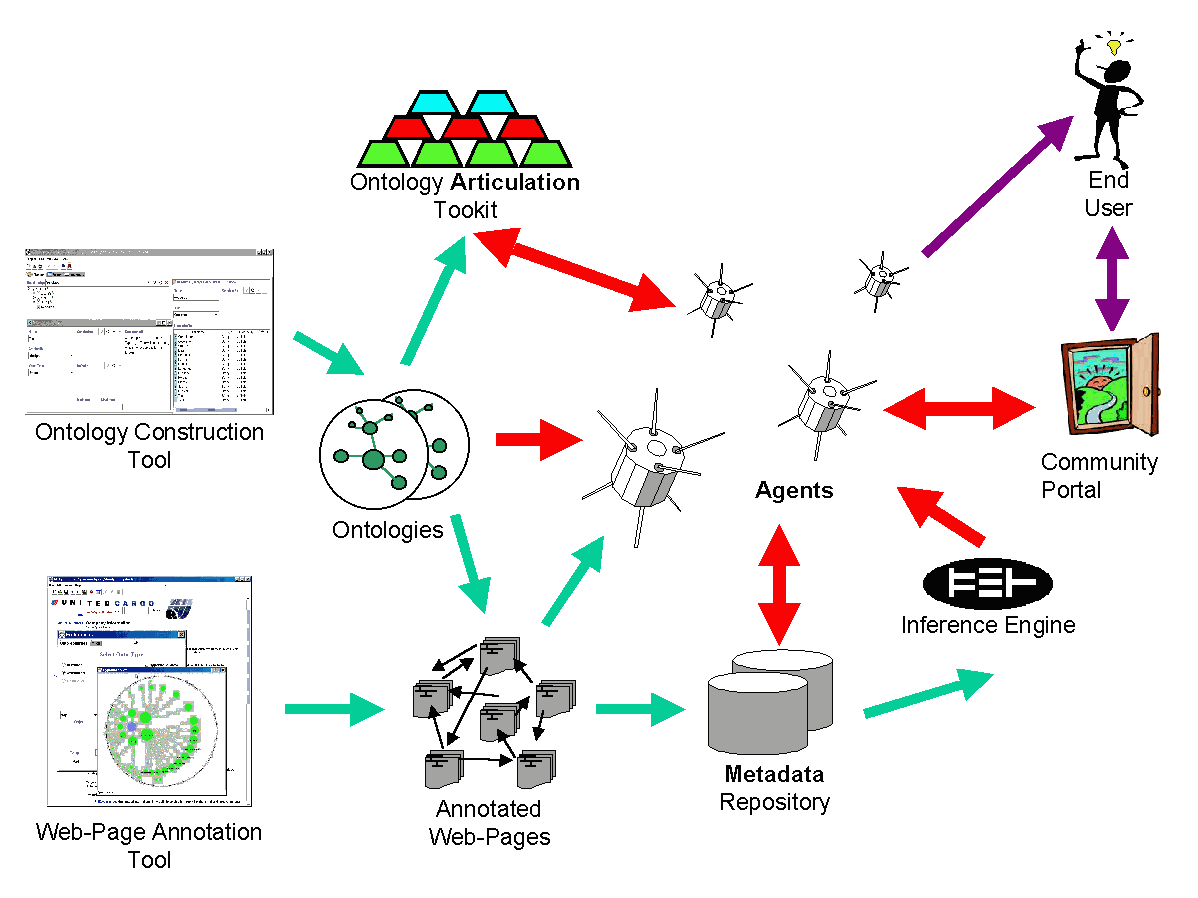|
The goal of OnTo-Agents is to establish an agent infrastructure on
the WWW or WWW-like networks. Such an agent infrastructure requires an
information food chain: every part of the food chain provides information,
which enables the existence of the next part.

The food chain starts with the construction of an ontology,
preferably with the OnTo-Agents Ontology Construction Tool. An ontology
is the "explicit specification of a conceptualization", which
provides all the required terminology, and a basis for a community of interest
for information exchange. The ontology defines the terms that are possible
to use for annotation information in webpages, using the DAML language.
The proposed OnTo-Agents Webpage Annotation Tool has means to browse the
ontology and to select appropriate terms of the ontology map to mark-up
sections of a webpage. The webpage annotation process creates a set of annotated
webpages, which are available to an OnTo-Agent to achieve its tasks. The
OnTo-Agent itself needs several sub-components, specifically the OnTo-Agents
Inference System for the evaluation of rules and queries and general inferences,
the OnTo-Agents Ontology Articulation Toolkit for mediation among information
obtained from different ontologies. The data in from the annotations can
be used to construct additional websites: a Community Web Portal, that presents
a community of interest to the outside word in a concise manner. And finally,
information-seeking users can give specific retrieval tasks to an OnTo-Agent,
or they can query a Community Web Portal for immediate access to the information.
|